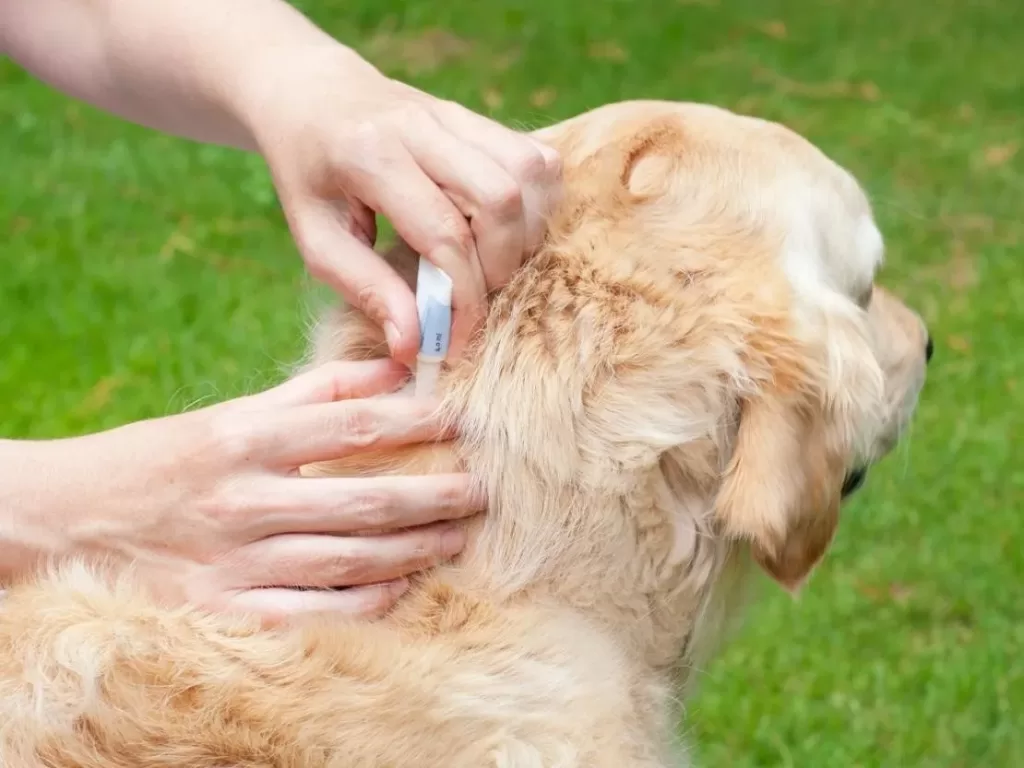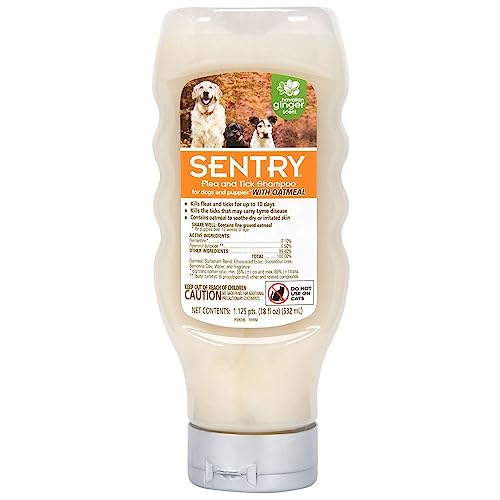Fleas are a common problem for dogs, especially in the spring and summer when they are more active. There are many natural flea treatments available, but the best way to treat your dog is to prevent them from getting fleas in the first place.
Some ingredients that can be used include garlic, apple cider vinegar, lemon, and cedar oil. Garlic is the most common ingredient used in flea treatments because of its strong smell and ability to repel other bugs.
Also Read: Toxic Gut Syndrome in German shepherds Causes and symptoms
Apple cider vinegar is also a common ingredient due to its anti-bacterial properties. Lemon is another popular ingredient for flea treatments because it has a sour taste that repels pests.
Here are some tips to help keep your dog flea free
Regularly groom your dog
Fleas can hide in hair, so it’s important to keep them clean. Regular grooming is important for your dog’s health since fleas can hide in the hair on their body. Fleas cannot survive on the skin, so regular grooming will help to keep them away. You can use a flea comb or a brush to remove any fleas that may be hiding in the hair.
Start by prepping your home for the treatment.
This means removing any food or water dishes that may hold fleas, as well as any furniture or objects that may host them. Prepping your home for flea treatment is an important part of making sure you get the most from your flea treatment. Fleas can live on many different surfaces, so it’s important to remove any possible places they could live.
Disinfect your dog and yourself using a natural Flea Spray or Bug Blaster.
Disinfecting your dog and yourself with a natural Flea Spray or Bug Blaster is an easy and effective way to keep you and your pet healthy. Fleas and bugs are attracted to smells, so using a natural product that smells bad to them will help keep them away.
Types of fleas:
Fleas are small, wingless insects that can jump a good distance and can live on many different animals. Dogs are the primary hosts for fleas, but cats can also be infected.
There are three types of fleas that can infect dogs:
- The dog flea (Ctenocephalides canis)
- The cat flea (Ctenocephalides felis)
- The human flea (Pulex irritans)
Each of these fleas has a specific life cycle and host preference, so while they all can infest dogs, they will do so to differing extents.
The cat flea is the most common type of flea found on dogs and is the primary vector for Bartonella spp.
Flea control products: There is a variety of over-the-counter and prescription flea control products available for dogs.
Flea control products fall into two categories: those that kill adult fleas and those that kill larval and pupal stages of the flea.
Adult fleas are the most common pest and are killed by products such as pyrethrum, permethrin, and malathion.
Larval and pupal fleas are killed by products such as carbaryl and diazinon.
Over-the-counter flea control products are available in many forms, including powders, liquids, and sprays.
These products kill fleas by targeting their nervous system. Some prescription flea control products also attack the nervous system but also include other ingredients that kill adult fleas.
Naturally, Prevent and Get Rid of Fleas on Dogs
Fleas are a common problem on dogs, and there are many ways to naturally prevent them from getting into your dog. Some simple methods include keeping your dog clean, using a flea collar and monthly treatment, and avoiding areas where fleas thrive.
Once fleas are established in your dog’s environment, it can be difficult to get rid of them.
Parasiticides can be effective in some cases, but they also carry potential risks.
10 Best Flea shampoos for Dogs
Flea shampoos are popular among pet owners because they are effective at removing fleas from a dog’s coat.
These shampoos generally use a variety of chemicals to kill adult fleas, larvae, and eggs. Many of these shampoos also contain ingredients that treat other skin issues like itchy skin or mange.
While there are many good flea shampoos on the market, the following 10 are some of the best.
Summary
In conclusion, there are many natural flea treatments available to pet parents and their dogs. Some work better than others, but all can be effective in treating fleas on a short-term basis.
If your dog is suffering from continuous flea infestations, it’s important to consult with a veterinarian for more targeted treatment options.











